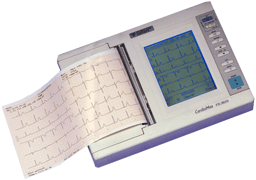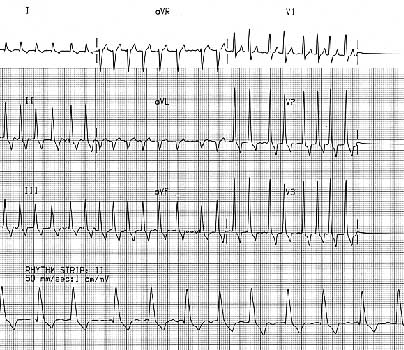Medical Articles
Electrocardiogram
The muscles of the heart are capable of generating electrical activity. The electrical activity is related to the impulses that travel through the heart that determine the heart's rate and rhythm. An Electrocardiogram (ECG) is a noninvasive test that records the electrical activity of the heart. The instrument that is used to make these recordings is called an electrocardiograph. In veterinary medicine, the ECG is recorded by placing electrodes (small non-irritating clips) on various parts of the animal's skin.
ECGs are commonly used in veterinary medicine for diagnosing heart problems. They are also used as cardiac monitoring devices during general anesthesia. Generally, a diagnostic ECG only takes about 10-15 minutes.
The style and size of electrocardiographs have changed throughout the years. Machines that were once large and heavy are now small and light weight.

Small, Light Weight, Modern Electrocardiograph

ECG of a 6 year old male Rottweiler. This dog has been slightly lethargic (tired) and has had a productive cough for about a week. The ECG indicates a condition called Atrial Fibrillation.
[ Search Articles ] [ Article Index ] [ Previous Page ]